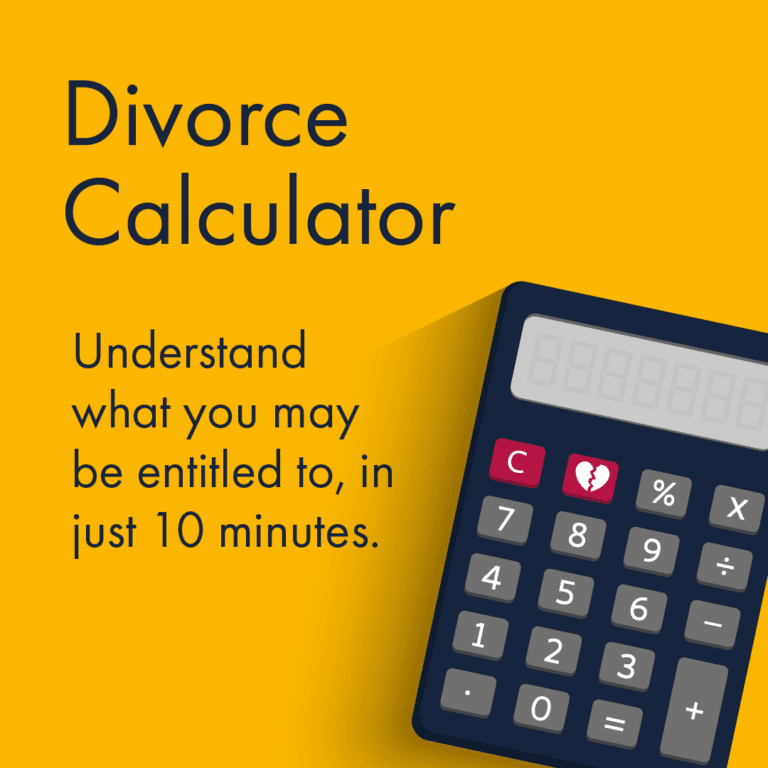What is a postnuptial agreement?
A postnuptial agreement is a document that is drawn up if a couple did not sign a prenuptial agreement before marriage or a civil union. It sets out their intentions of how any assets should be divided should the relationship break down.
read morePrenuptial (prenup) and postnuptial agreements (postnup) are similar, offering a certain level of protection by setting out the ownership of belongings (money, assets and property).
It is important to note that postnuptial agreements are not legally binding in England and Wales and are considered by a court along with other factors including the length of the relationship, the financial assets and the contribution made by each person.
A postnup can be made at any point following marriage or a civil union. It can be used to address the situation at that time and make provisions for the future – for example, if you have children.
It is important to get an expert postnuptial agreement solicitor to draft the document and ensure that you both have legal advice and full financial disclosure when deciding the terms.
Our team can advise you on this and is experienced in drafting a wide range of postnuptial agreements, from multi-million agreements with complicated assets to smaller agreements covering property and inheritance for children.
Key divorce finances information
|
What is a prenuptial agreement? |
Also known as ‘prenups’, prenuptial agreements are written contracts that couples can enter before marriage or civil union. The prenup outlines ownership of money, assets, or property and what will happen to them in the case of divorce or dissolution. |
|
How does spousal maintenance work? |
Different to child maintenance, spousal maintenance is a payment from one former spouse to another after divorce. The amount can change at any time and should be decided based on financial needs and income. A divorce lawyer can help you come to an agreement on how much spousal maintenance should be paid out of court. |
|
What is a freezing order? |
Commonly used in divorce or dissolution cases, freezing orders prevent one spouse from disposing of assets until a case is resolved. This protects the other part from missing out on assets they may have matrimonial claim over. |
Our other financial family law services
 Use the calculator
Use the calculator
Why would you need a postnuptial agreement?
Couples might choose to draw up a postnuptial agreement for many reasons. These might include:
- Wanting to protect an inheritance
- To gain clarity on ownership of certain assets, including businesses
- To provide clarity and protection when children are involved
- To gain financial security in the event of taking time out of work, such as forstay-at-home parents
- Failure to draw up a prenuptial agreement
What does a postnuptial agreement include?
Postnuptial agreements are tailored to the couple, so they can include many aspects depending on your needs. Agreements are usually centred around finances and often incorporate factors such as:
- Assets and debts (and how any outstanding debts will be paid for)
- Income (including any expected gifts and/or inheritance)
- Any future income or gains (including property)
- A list of personally and jointly owned belongings
- How much maintenance will be paid to your ex-partner in the event of a divorce/separation
- How any property will be divided (such as second homes)
- Any insurance coverage, including life, medical and disability
Meet our postnuptial agreement solicitors
We offer an award-winning service
 Download the guide
Download the guide
Are there any situations in which a postnuptial agreement is not recommended?
Because postnuptial agreements are not legally binding, it is important to remember that an agreement can be overruled by the court if it is deemed to be unfair to one member of the party in the event of divorce.
read moreIt is also imperative that each party receives expert legal advice to be able to make an informed decision about the details of the agreement and is not put under pressure to draw up a document they disagree with.
A couple’s circumstances can change and it is a good idea to revisit a postnuptial agreement regularly to make sure it reflects the current situation. Factors that could alter an agreement include having children, receiving a large inheritance or acquiring additional assets.
While pre and post-nups are not automatically binding in England & Wales, they are heavily persuasive and will likely be upheld by the court where needs are met, accurate disclosure and both parties have had legal advice.
Why choose Stowe Family Law?
As the only national law firm fully dedicated to family matters, our expert team offers professional advice so you can make a fully informed decision about your divorce.
We are proud to be rated ‘Excellent’ on Trustpilot. Check out our reviews to see what our previous clients have said about our service.
We feature in The Legal 500 rankings and are fully authorised and regulated by the Solicitors Regulation Authority (SRA).
We keep you informed. Take a look at our support section, which features a range of helpful guides, focusing on important topics including finances and mediation.
Let's ask Ms T
May I take this opportunity to personally thank you for your support at this difficult time. I very much appreciated your flexibility and responsiveness to such tight turnaround times. I received a thorough, professional yet compassionate service.Let's ask Mr H
Having recently completed Financial Remedy proceedings through Stowe Family Law, I have no hesitation in recommending Jennifer Reddy. Jennifer made the potentially unwieldy legal process considerably less difficult. Her helpful and professional advice meant that I always had a clear understanding of the options available to me, and her support in p… Read morereparing for my hearing allowed me to feel confident when I went into court. Thanks to Jennifer’s knowledge and guidance, the outcome of my case was far better than I had ever thought possible.Let's ask Legal 500
They have a singular reputation in high net worth and complex financial remedy cases. Clare Cleary is in her element dealing with complex and high net worth family finance cases. She always strives for the best for her clients whilst giving realistic advice, managing client expectations’.Let's ask Ms G
Joanna Newton is tough, knowledgeable and dependable, she listened to me and discussed my options with me. She advised me where I stood and what my rights and my ex-husband's rights were. She gave me trusted advice about my home and financial security. I would recommend Joanna without any reservations.Let's ask Legal 500
Hollie Morgan is a stellar solicitor with a calm and friendly approach to her cases. She is extremely organised and has a high technical ability both advising and in advocacy. She specialises in all areas of family law and has experience with complex high value financial matters.’Let's ask Anon
I came to Matt after trying to finalise my financial settlement with my ex-husband through previous solicitors for 6 years, with no success. Matt took complete control of things, achieving a fabulous and swift result, finally allowing me to move on with my life. He was absolutely amazing and fantastic to work with.Let's ask Legal 500
Jemma Slavin is a passionate advocate of her clients’ causes and knows each case extremely well. Jemma is alive to what the client needs from the legal proceedings and does all she can to help them achieve it.Common questions on postnuptial agreements
Common questions on postnuptial agreements
-
Is a postnuptial agreement legally binding?
Postnuptial agreements in England and Wales are not legally binding but they are taken into consideration by the court in the event of a separation. It can be upheld by the court if the postnup is considered fair and neither party was pressured into it.
The rules differ in Scotland, where postnuptial agreements can be legally binding depending on the conditions.
-
What is the difference between a prenuptial agreement and a postnuptial agreement?
A prenuptial agreement is drafted before a couple marries or enters into a civil union. It is more common than a postnuptial agreement, which is drafted for couples who are already married or in a civil union.
Postnups can be useful if there are any major changes in a couple’s financial situation, such as significant additional assets, inheritance or children, or if a couple did not get a prenup.
-
Do I need a postnup if I have a prenuptial agreement?
If a couple has a prenup, a postnuptial agreement is not usually necessary unless financial circumstances change dramatically. If either party receives an inheritance or acquires any significant assets, it is wise to revisit any previous agreement.
-
Do I need a postnuptial agreement solicitor?
A postnuptial agreement solicitor can offer professional legal advice and ensure both parties have a thorough understanding of what they are entering into. An expert lawyer can also make the postnup fair for both individuals, meaning it is more likely to be upheld by a court in the event of a separation.
Our postnuptial agreement solicitors offer a friendly, tailored approach and strive to make the process as smooth as possible.
-
Is there an alternative to postnuptial agreements?
A cohabitation agreement might be suitable for couples who are not married or in a civil union but are living together. It can help protect financial assets and set out arrangements for children should the relationship break down.
A cohabitation agreement can be especially useful if one person has contributed more to a property or if there are unequal assets.
Latest advice
Newsletter Sign Up
Sign up for advice on divorce and relationships from our lawyers, divorce coaches and relationship experts.
Privacy Policy






















